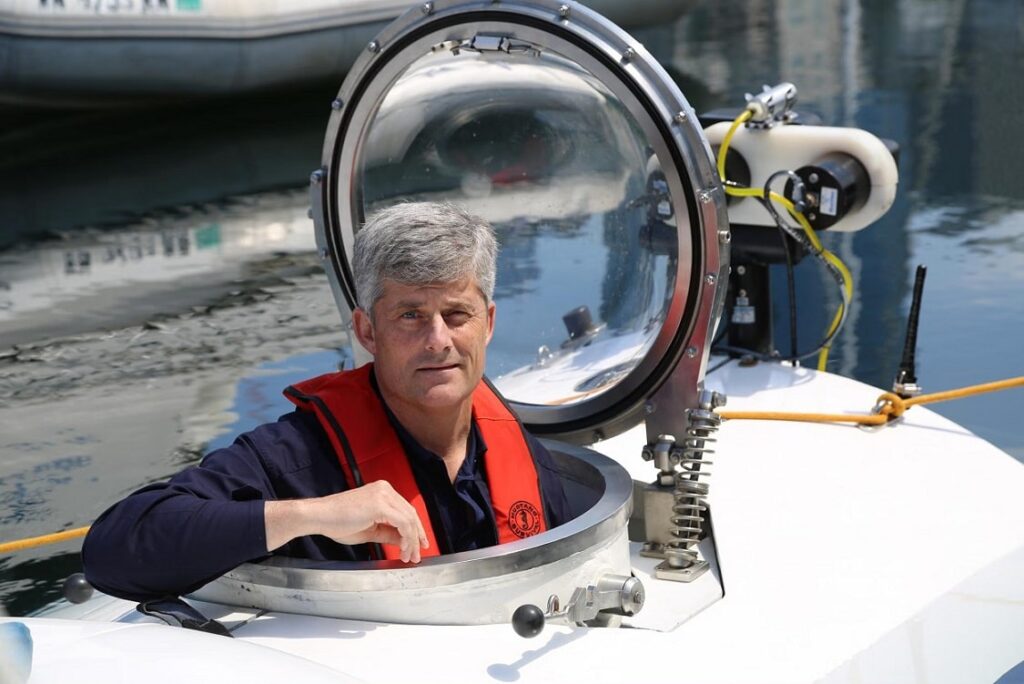Stockton Rush wasn’t your everyday entrepreneur. He was a man of ambition and deep-sea dreams, literally. As the CEO and co-founder of OceanGate Inc., Rush sought to redefine human exploration by making the ocean’s most mysterious depths more accessible. Ever wondered how someone like Stockton Rush, a pioneer in deep-sea exploration, made his money? Or how much he was really worth before the tragic Titan submersible incident brought him into the global spotlight?
From aerospace ambitions to business ventures deep underwater, his life reads like a billionaire’s sci-fi novel. But how much was he actually worth? And where did all that money come from or go? Let’s dive deep into the Stockton Rush Net Worth from his earnings and assets to the controversies that defined his career.
Table of Contents
- 1 Who Was Stockton Rush? A Quick Background
- 2 How Stockton Rush Got Started in Business
- 3 Stockton Rush Net Worth at Its Peak
- 4 Main Sources of Income
- 5 Assets Owned by Stockton Rush
- 6 The Titan Submarine Project: Innovation or Gamble?
- 7 Ethical Controversies and Criticism
- 8 Comparing with Other Innovators in the Field
- 9 Conclusion
Who Was Stockton Rush? A Quick Background
Stockton Rush was born into a prominent family; he had a fascination with both flight and the ocean. He held a degree from Princeton University in aerospace engineering and later pursued an MBA from UC Berkeley’s Haas School of Business. His blend of technical knowledge and business awareness cover the way for an unconventional career path that combined both air and sea. His early passion for flight led him to become the youngest jet transport-rated pilot in the world at the age of 19. Rush was married to Wendy Rush, a direct successor of two Titanic victims. She worked closely with OceanGate as Director of Communications and participated in philanthropic efforts tied to marine conservation.
How Stockton Rush Got Started in Business
From Pilot to Entrepreneur
Unlike many who follow the traditional corporate path, Rush took a different route. His early ventures included working with aircraft and developing innovative ways to explore hard-to-reach places literally. This mindset would eventually lead him underwater with the creation of OceanGate, a deep-sea exploration company that made headlines around the world.
Building OceanGate
In 2009, Stockton Rush co-founded OceanGate Inc., a private company that aimed to make deep-sea exploration more accessible. The idea was bold: build submersibles that could take researchers and wealthy adventurers to the depths of the ocean, including the famous wreck of the Titanic. OceanGate wasn’t just about adventure; it was marketed as a scientific and technological innovation hub. The company attracted millions in investments and private funding, promising a new frontier for tourism and research beneath the sea. Stockton Rush hoped to offer tourists a once-in-a-lifetime experience of diving nearly 13,000 feet below sea level.
Stockton Rush Net Worth at Its Peak
At his financial peak, Stockton Rush’s net worth was estimated to be between $10 million and $25 million at the time of his death. Most of this came from private investments, business assets, and intellectual property associated with OceanGate.
Unlike Silicon Valley tech tycoon who show off their billions, Rush’s wealth was more diplomatic, spread across business ventures and company shares rather than liquid cash or flashy toys.
Liquid Assets: $2–5 million
Equity and IP Value: $10–20 million
Other Holdings: $1–3 million
Main Sources of Income
So how did Rush make his money? OceanGate wasn’t just a research initiative it was a business.
Ticket Sales for Titanic Dives
Each Titanic dive ticket was priced at $250,000 per person. Despite the cost, OceanGate managed to attract adventure-seekers, including tech CEOs and wealthy thrill-chasers. The steep price of a single dive raised eyebrows. But when you factor in the expenses, maintenance of the submersible, crew salaries, ship rentals, insurance, and technology the profit margins were thinner than expected.
- Estimated Operating Cost per Dive: $100,000+
- Net Profit per Dive: Roughly $500,000–$700,000 annually based on limited expeditions.
- Business Ownership: Majority shareholder in OceanGate.
- Private Funding: Millions raised from high-net-worth individuals and institutional investors.
- Technology Licensing: Patents and IP related to submersible technology.
Assets Owned by Stockton Rush
Unlike typical billionaires who floodcash into yachts and real estate, Stockton Rush put his money into his vision deep-sea innovation.
Stockton reportedly owned a waterfront property in Washington state and enjoyed a lifestyle filled with high-end technology and luxury though not to a celebrity extent.
As the co-founder and CEO, Rush held a significant equity stake in OceanGate. Prior to the Titan incident, OceanGate was valued at an estimated $50–$100 million.
The designs, patents, and research developed for the Titan represented valuable intellectual property. Though non-liquid, they factored heavily into Rush’s net worth on paper.
The Titan Submarine Project: Innovation or Gamble?
In June 2023, during a dive to the Titanic, the Titan submersible implanted, killing all five people aboard, including Stockton Rush. The event made global headlines and sparked intense debates about the risks of extreme tourism. The Titan sub became a symbol of both ambition and tragedy. Designed to reach the Titanic ruins, it showcased innovative materials and design but also drew criticism for bypassing some conventional safety regulations.

Was it innovation, or a costly gamble? Financially, it was a high-risk project. Rush put not just funding but also his reputation and business future on the line.
Public and Media Reaction
Following the Titan disasterin June 2023, media coverage expanded. Media outlets quickly marked OceanGate’s safety practices. Former employees and experts came forward, warning that corners had been cut in the name of innovation. The public’s opinion of Rush shifted from visionary to reckless risk-taker.
Legal Matters and Financial Impact
There were discussions of lawsuits, insurance claims, and potential government investigations after the Titan tragedy. Although Rush was no longer alive, any personal guarantees he had made for OceanGate’s debts could impact his estate’s value and his family’s financial future. While it’s unclear how much was paid out or covered, the legal shadows surely impacted the company’s stability and future cash flow.
Ethical Controversies and Criticism
Neglecting Safety Protocols
Multiple engineers reportedly warned Rush about Titan’s structural integrity. But Rush famously said, “At some point, safety just is pure waste.”
Whistleblower Claims
Former OceanGate employee David Lochridge had raised red flags about safety years before. He was later terminated, further fueling controversy.
Comparing with Other Innovators in the Field
Compared to names like Elon Musk (SpaceX) or Richard Branson (Virgin Galactic), Rush was a smaller player but no less ambitious. While Musk aimed for Mars, Rush focused on the deep sea. Financially, the difference was massive, but ideologically, they shared a similar daring spirit. Think of it like comparing a fearless sailor with a space explorer they each have their oceans to conquer.
While his death was tragic, Stockton Rush left behind a legacy of curiosity and innovation. OceanGate’s future remains unclear, but the patents, technology, and vision he helped create continue to influence ocean exploration. Whether remembered as a pioneer or a risk-taker, one thing is clear: Rush put his money where his passion was.
Conclusion
Stockton Rush Net Worth wasn’t just about dollars and cents, it was a reflection of ambition, innovation, and controversy. From aerospace dreams to ocean depths, he invested his life, quite literally, into pushing boundaries. His financial journey is a reminder that wealth isn’t always measured by what you earn, but also by what you dare to do.
FAQs
1. What was Stockton Rush’s primary source of income?
His main source of income was OceanGate, through ticket sales, private investments, and technology development.
2. How much did OceanGate charge per Titanic dive?
Each dive to the Titanic wreck cost $250,000 per person.
3. Was Stockton Rush considered wealthy before founding OceanGate?
He came from a well-off background but wasn’t notably wealthy until OceanGate gained traction.
4. What assets did Stockton Rush personally own?
He owned equity in OceanGate, real estate, and some intellectual property associated with submersible technology.5. Did legal actions affect his net worth posthumously?
While lawsuits and liabilities emerged after the Titan incident, their full financial impact on his estate remains uncertain.

